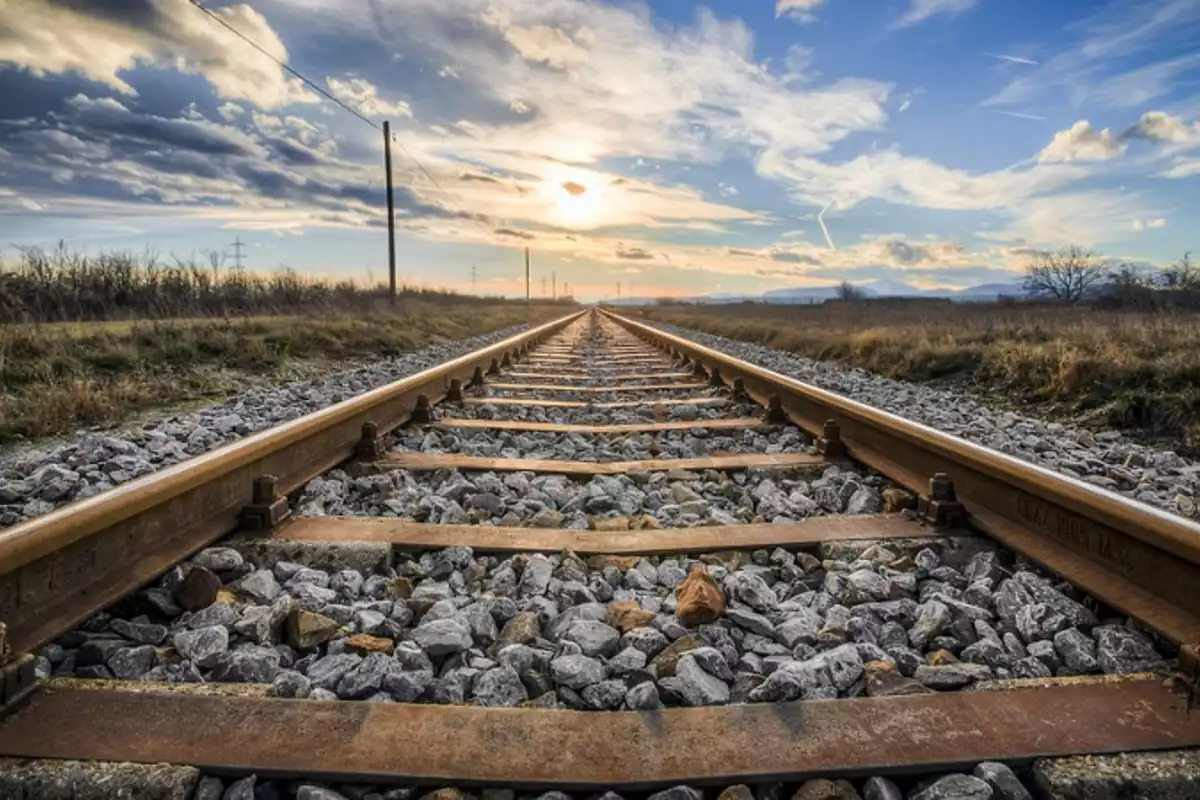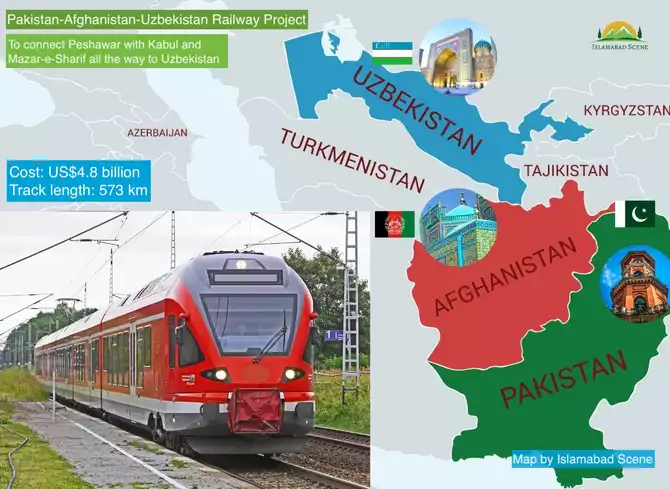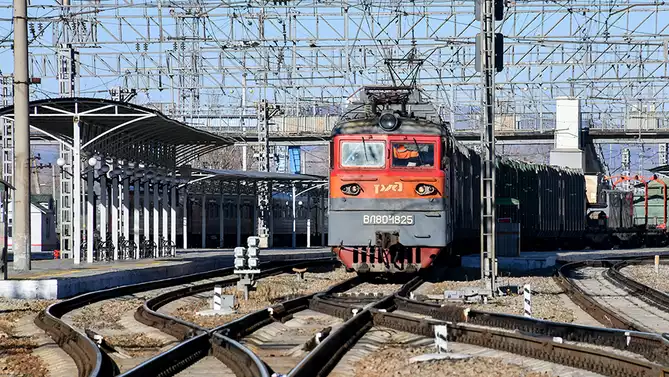
Photo: akipress.com
In an interview with Euronews on April 1, 2025, President of Uzbekistan Shavkat Mirziyoyev emphasized Central Asia’s emerging role as a “key link in global transport chains.” He highlighted the region’s focus on expanding both the Trans-Caspian and Trans-Afghan transport corridors, which he said would enable Central Asian countries to significantly increase access to major global markets. Following this statement, international observers have turned their attention to the security challenges facing the Trans-Afghan Railway project, especially in light of a violent incident in March 2025 in Pakistan, when the so-called Balochistan Liberation Army attacked the Jaffar Express passenger train, killing several passengers and guards and taking hostages.
Uzbek political analyst Bakhtiyor Ergashev remarked that this tragedy underscores the urgent need for robust measures to secure both passengers and cargo across transport routes passing through Pakistan and Afghanistan. He stressed that this security issue must take precedence over discussions about technology, investment, and financing. According to Ergashev, Central Asian states lack the ability to directly influence security conditions in Afghanistan and Pakistan. He further suggested that some Western countries-including the EU and the United States-may have a vested interest in prolonging instability in the region to prevent the expansion of trade and economic cooperation between Central Asia, Russia, Belarus, and the nations of South and Southeast Asia.
The roots of the Trans-Afghan Railway date back to 2021, when Uzbekistan, Afghanistan, and Pakistan signed a roadmap for the construction of a railway running from Termez to Mazar-i-Sharif, Kabul, and Peshawar. Uzbekistan emphasized at the time that, because Central Asian countries lack direct access to seaports, their transportation and transit costs are two to three times higher than those of maritime nations. For this reason, the railway is seen as a project of strategic significance that could usher in a new era of regional and international trade, dramatically increasing the region’s transit potential. Experts have highlighted how the successful completion of the railway would bring Uzbekistan and other Central Asian countries closer to the Indian Ocean, reducing cargo transit times to Pakistani ports by two-and-a-half to three times.
In 2023, Afghanistan called on Russia and Kazakhstan to join the project. This proposal elevated the broader vision of a corridor connecting Russia, Uzbekistan, Afghanistan, Pakistan, India, and Southeast Asia. The initiative was initially discussed in 2022 during the third meeting of the Joint Working Group between the Government of Uzbekistan and the Eurasian Economic Commission, where Russia and Belarus strongly supported its development. By the end of 2023, Russia, Kazakhstan, and Uzbekistan signed a memorandum of understanding. That same year, project planners announced a shorter railway route connecting Kabul with Logar, Paktia, and the Pakistani city of Parachinar.
In the spring of 2024, Kazakhstan expressed interest in joining railway initiatives in Afghanistan. A working group meeting in Termez led to the signing of a roadmap to develop a multimodal transport corridor stretching from Belarus through Russia, Kazakhstan, Uzbekistan, Afghanistan, and into Pakistan. In the autumn of 2024, Pakistan officially joined the memorandum, aligning itself with the vision of an international corridor extending to the ports of the Indian Ocean. Moscow subsequently described the Trans-Afghan Railway as a key line for enhancing regional connectivity and a vital element of the North-South Transport Corridor, which it views as a bridge between Northern Eurasia and the Global South.

Pakistan, Afghanistan, Uzbekistan sign joint agreement for rail link. (Image Credit: Islamabad Scene)
In February 2025, Uzbekistan’s Ministry of Transport confirmed that construction of the Trans-Afghan Railway could begin this year. Authorities announced plans to extend the route by 80 kilometers to reach ports in Pakistan and Iran, turning the corridor into a vital trade artery not only within Asia but also providing Russia with an additional gateway to the global ocean. As construction of the China-Kyrgyzstan-Uzbekistan railway began in late 2024, the launch of the Trans-Afghan Railway is expected to follow in 2025. Meanwhile, a freight train departed from Chongqing, China, to Hairatan in Afghanistan, inaugurating the first direct rail connection between the two countries via Kazakhstan and Uzbekistan.
The project has attracted the involvement of major geopolitical players from both the region and beyond. It is increasingly seen as part of a broader international corridor running from Belarus to the Indian Ocean. Analysts describe it as the eastern branch of the North-South Transport Corridor, which, if fully implemented, would give Moscow direct access to markets throughout the Indian Ocean basin. Some experts are cautiously examining a potential extension of the project into Iran, including a proposed railway from Herat through the Afghan provinces of Ghor and Daykundi that would merge with the Trans-Afghan line.

Photo credit: Yevgeny Yepanchintsev / TASS
These developments have raised concerns among some Western powers. Experts often cite the views of former U.S. Navy officer James Durso, who has emphasized Washington’s growing interest in Central Asia. Durso has argued that the United States should invest in the Trans-Afghan Railway as an alternative to China’s Belt and Road Initiative. He believes that such support would help diversify Central Asia’s trade partners and reduce its dependency on Beijing-an outcome aligned with long-term American strategic interests.
Given these complex dynamics, observers expect the project to continue encountering obstacles, though not necessarily in the form of hostage crises or armed attacks. In this context, Russian Deputy Prime Minister Alexei Overchuk announced at the Boao Forum for Asia that Russia plans to launch its first freight train to Pakistan as early as April 2025.
Much now depends on how regional and global stakeholders navigate the security, financial, and political challenges ahead. The future of the Trans-Afghan Railway may well shape the economic landscape of Central Asia and redefine connectivity between Eurasia and the Indian Ocean region.
Share on social media